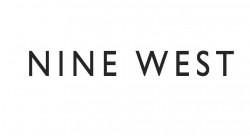Top Class Actions’s website and social media posts use affiliate links. If you make a purchase using such links, we may receive a commission, but it will not result in any additional charges to you. Please review our Affiliate Link Disclosure for more information.

Lead plaintiff, New York resident Ashley Rumph, claims in her class action lawsuit that when she applied to a Nine West retail location in New York City in August 2010, the online job application didn’t properly disclose the company’s intent to conduct a background check or provide clear authorization language to the applicant.
“The inclusion of additional language into the authorization forms invalidates the purported consent requirements,” the class action lawsuit alleges. “Following Plaintiff’s submission of the online application, Defendant … procured a consumer report regarding Plaintiff’s ‘police record check.’” Consequently, Nine West “has obtained consumer reports without proper authorization, because the authorization and disclosure form signed by plaintiff and other class members failed to comply with the requirements of the [Fair Credit Reporting Act],” the class action lawsuit says.
According to the plaintiff, the Fair Credit Reporting Act (FCRA) requires the use of a stand-alone form for applicants to authorize the employer to conduct a background check, but Nine West embeds authorization language in their application with other information. The class action lawsuit also alleges that Nine West did not use the term “consumer report” in its job application as required by the FCRA. “Importantly, no extraneous information can be attached or included on the consent form,” stresses the Nine West class action lawsuit. “The authorization and disclosure must stand alone.” The complaint explains further that “[b]y including the additional information/language … in its background check disclosure and authorization form, defendant willfully disregarded the FTC’s regulatory guidance and violated the FCRA.”
The class action lawsuit argues that “Defendant’s willful conduct is reflected by, among other things, the following facts: (a) Defendant is a large company with access to legal advice through its own general counsel’s office and outside employment counsel; (b) Defendant included a purported authorization to perform background checks in its employment application which, although defective, evidences Defendant’s awareness of and willful failure to follow, the governing laws concerning such authorizations; (c) the plain language of the FCRA unambiguously indicates that inclusion of additional language and disclaimers in a disclosure form violates the disclosure and authorization requirements; and (d) the [Federal Trade Commission’s] express statements, both pre, concurrent with, and post Defendant’s conduct, which state that inclusion of additional language and disclaimers in the documents at issues, violate the FCRA.”
The Nine West class action lawsuit proposes to represent a class of “all employees or prospective employees of Defendant in the United States, who completed Defendant’s background check disclosure and authorizations forms allowing Defendant to obtain a consumer report at any time during the period beginning five (5) years prior to the filing of this Complaint.”
“The inclusion of additional language into the authorization forms invalidates the purported consent requirements, and also triggers statutory damages under the FCRA in the amount of up to $1000 for each applicant that Defendant obtained a consumer report regarding, without a facially valid authorization, as well as punitive damages, equitable relief, and attorney’s fees and costs,” the Nine West class action lawsuit says.
The plaintiff is represented by Richard Celler Legal PA and Gottlieb & Associates.
The Nine West Improper Background Checks Class Action Lawsuit is Rumph v. Nine West Holdings Inc., Case No. 0:14-cv-61673, in the U.S. District Court for the Southern District of Florida.
ATTORNEY ADVERTISING
Top Class Actions is a Proud Member of the American Bar Association
LEGAL INFORMATION IS NOT LEGAL ADVICE
Top Class Actions Legal Statement
©2008 – 2024 Top Class Actions® LLC
Various Trademarks held by their respective owners
This website is not intended for viewing or usage by European Union citizens.















One thought on Class Action Lawsut Says Nine West Conducts Improper Background Checks
Good afternoon,
I was brought into the 9W group in October 2014 in a small horse farming area in Kentucky and very much believe that this has been a factor in my release once I underwent the training of my replacement. I was officially released in mid-February. The location had additional safety issues as noted by the fire department, OSHA and juvenile labor law issues, etc, and my hours were severely modified during holiday weeks.
I hope to hear from you. At this point I have little confidence in anyone, I won’t post a bad review either, but I do have many photos, witnesses, and other types of verifiable evidence from corporate and law enforcement.
Best Regards,
Anna Tice
502-249-3914